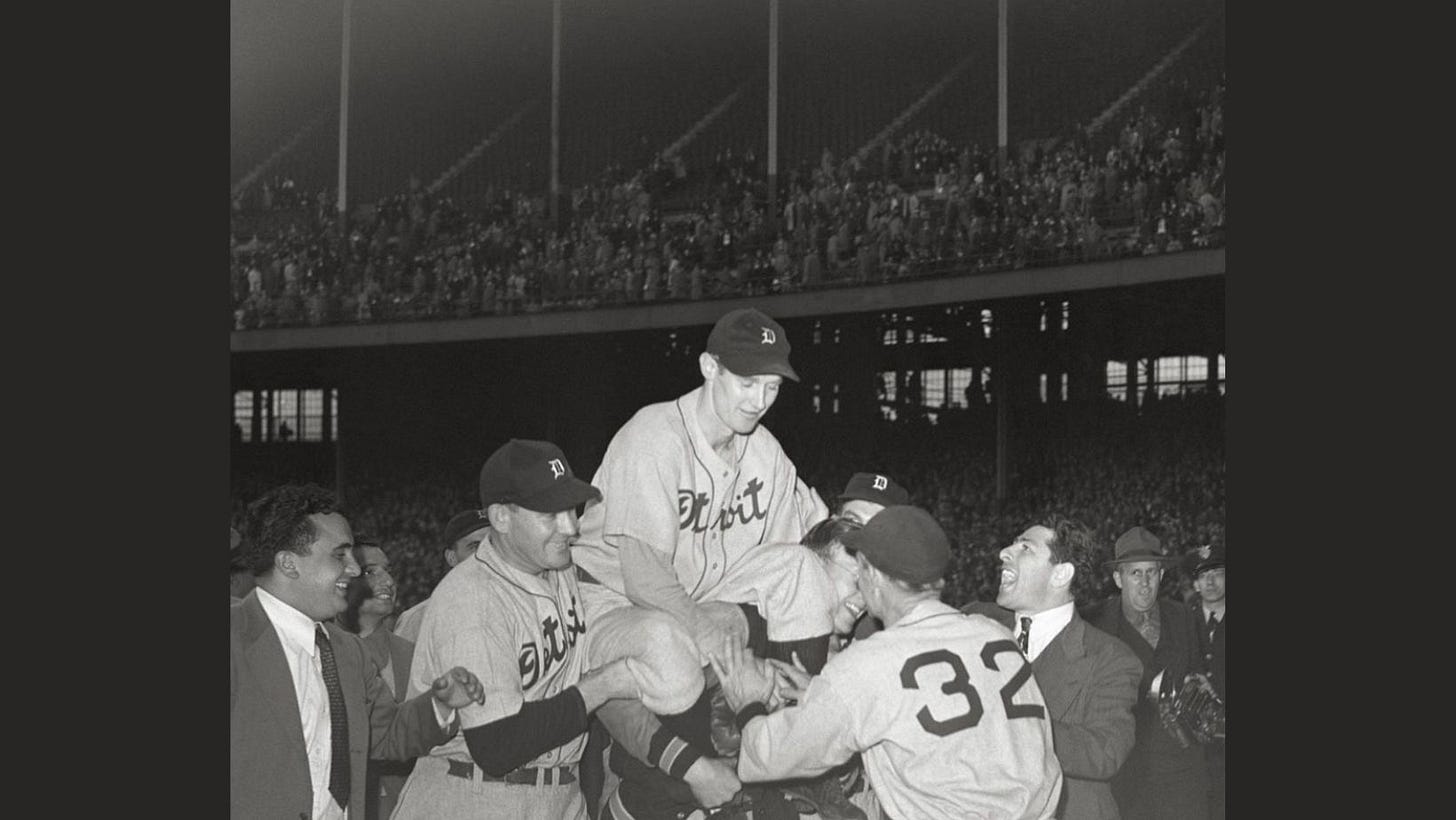Should Pennant Races Count For More?
When we talk about which teams were the greatest teams of all time, we tend to take shortcuts.
The one that we all fall prey to is looking only at the won-loss record. That’s why you see so many people rant and rave about how good the 1906 Cubs, 2001 Mariners, and 1954 Indians were.
They’ll tell you that it doesn’t matter that each of those three teams were ultimately unsuccessful in their quest for a world championship. The postseason is a crapshoot, they’ll say. You can never predict what will happen in a short series. It’s the regular season that matters, they’ll say, and will quickly follow up with some generic statements about how managing in the regular season is different, how it requires more pitching depth, better use of utility players, and so on.
But there’s something else going on here.
The truth is that many of those “great teams” weren’t really challenged.
Patsies
I mean, what do you do when you won the pennant with a month to spare?
The 1939 Yankees won the pennant on September 6, only 130 games into the season. They still had a whopping 22 games left to play (looks like 2 games were simply not rescheduled):
All but 2 of these games were at home. The attendance was atrocious — and can you blame the fans for not going?
The Yankees went 15-7 in this stretch, scoring 109 runs against the 78 runs they gave up. And all of this came in games that were meaningless.
Now, the 1939 Yankees’ dominance didn’t come in those 22 meaningless games. You’ll see a lot more crooked numbers in the runs column if you look at earlier parts of the 1939 season, like this:
Note, of course, that the Yankees padded that famous run total by creaming the likes of the Philadelphia Athletics, the St. Louis Browns, and the Detroit Tigers — all second division clubs. They did play impressively in that 3 game series against the White Sox, sweeping all 3 games at Comiskey while outscoring their opponents 37-11 (how’s that for defying park factors?). However, that doesn’t exactly hide the fact that the Yankees’ greatness seems to have come mostly at the expense of the worst teams in the league.
Seriously — Philadelphia and Washington probably should have been relegated. In these two late June series, the Yankees demolished both teams, taking 2 of 3 on the road. They outscored the Athletics by an incredible 35-5 margin in only 3 games, despite losing one. They then went to Washington, where they outscored the Senators 18-4 in 3 games, again losing a close one run game in 12 innings.
I’m not going to doubt that they’re a great team — but are we actually rewarding greatness in the face of adversity, or running up the score?
Pennant Race
Let’s compare this to a similar team in a hard fought pennant race.
This is what September looked like for the 1940 Detroit Tigers:
Now, the scores look kind of similar, right? This was 1940, after all. Scoring wasn’t quite as out of control as it was back in 1930, but it was still a bit crazy.
But you’ll notice something. The Tigers beat the Yankees at home, 6-3 and 8-0, in the first two games of a crucial 3-game series in the middle of the month. They then lost by a huge 16-7 margin. That gives them a 21-19 run advantage for the series — a bit more even, don’t you think?
Detroit had to worry about Cleveland, too, who wound up in second place as the three team pennant race subsided. It wasn’t until September 27 that Detroit finally clinched — and the Tigers then proceeded to lose the next 2 to the Indians, giving us the famous 1-2-3 finish:
What Counts For More?
Now, I’m not going to argue that the 1940 Tigers are more worthy of the title “great baseball team” than the 1939 Yankees.
However — shouldn’t that pennant race count for something?
I mean, the Yankees spent almost the entire 1939 season 15 games up. You could argue that practically none of their games were meaningful.
In 1940, on the other hand, every single game was meaningful.
Which is the better measure of greatness?










Daniel, interesting post. I have generally chosen to simulate seasons with close races in my DMB replays. They usually end of being close in the replays, although not always with the same pennant winner. Replays with close races are more interesting and fun to wade through in replays that can take a year or a bit more to complete.
One of my replays was, in fact, the 1940 AL season. As you said, the Tigers won the pennant by a game over the Indians and 2 over the Yankees. In addition, most of the other teams were, if not great, at least competitive. The Red Sox and White Sox were each 8 games behind. Even the 6th place Browns were only 23 games behind Detroit. The Senators were 26 games off the pace and the A's 30. So, even the second division teams won with some frequency.
Lots of great individual performances in the replay. Hank Greenberg had a remarkable year at bat: .336 batting average, 177 RBI, 41 HR and 64 2B. In real life, 1940 was Greenberg's last season before World War II. He was among the first people drafted, even before Pearl Harbor. He didn't return until late 1945 just in time to help Detroit win another pennant.
Bob Feller was the dominant pitcher in a hitter's season: 2.56 ERA, 241 K and a 21-13 win-loss record. He was the only 20 game winner in the replay.